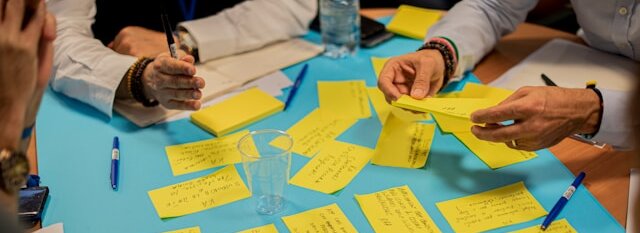Students taking responsibility for their own learning process
Workshop at Applied Sciences Education Day 17 June 2024
After a brief introduction by Remon Rooij on Initiative on Innovation in Delft Engineering Education (IDEE), the participants started with a self-reflection on what “Students taking responsibility” (STR) means to them, including the level, their role, and importance of this concept.
These reflections served as introduction to the other group members, where common denominators as topic, approach, and drive were identified. This sparked lively discussions, with participants comparing ideas and considering and thinking how to implement other’s concepts in their own course. One approach was selected and explored further, delving into dreams, success criteria, and challenges.
Each group presented their ideas:
- Program level intervisions: Leading to a better balance between work and social life for students.
- Finding your why: Focus on how to learn, while as teacher you trust the student’s commitment. One method is to have students write a letter to their future self, to be received at graduation.
- Career path motivation: Balancing students’ feeling of safety and security with offering autonomy. The challenge is to let students feel comfortable with making mistakes and providing opportunities to improve those within a course.
- Improve group dynamic: Through one-to-one interventions, and sessions with the study counsellor. Efforts focus on group formation, equal distribution of workload, and fair assessment.
- Autonomy and structure in group work: Allow students to self-assign roles, and discover their strength and weaknesses. Well-designed and scheduled interventions foster group dynamics, and prepare students on team work in future jobs.
